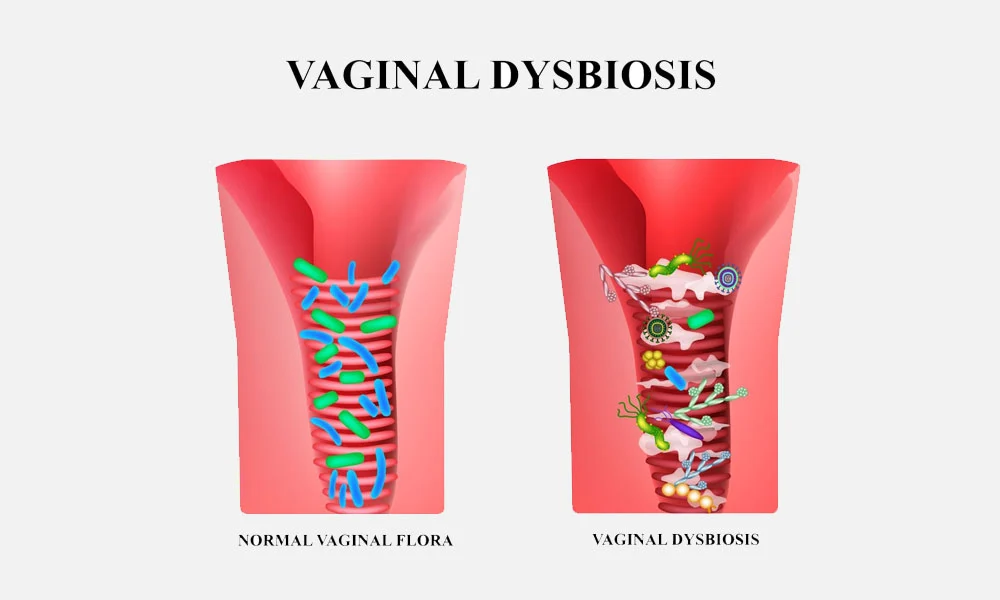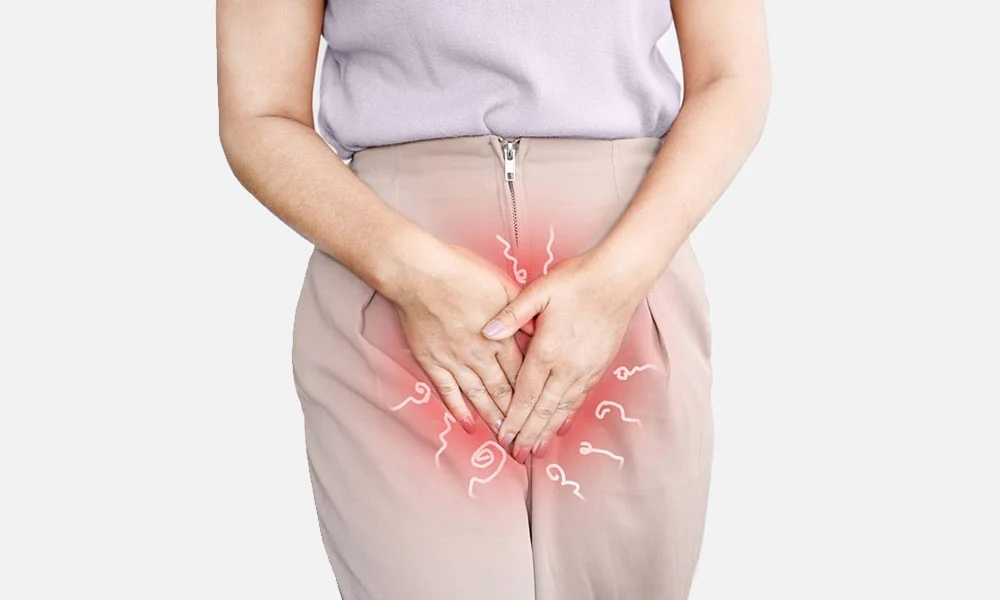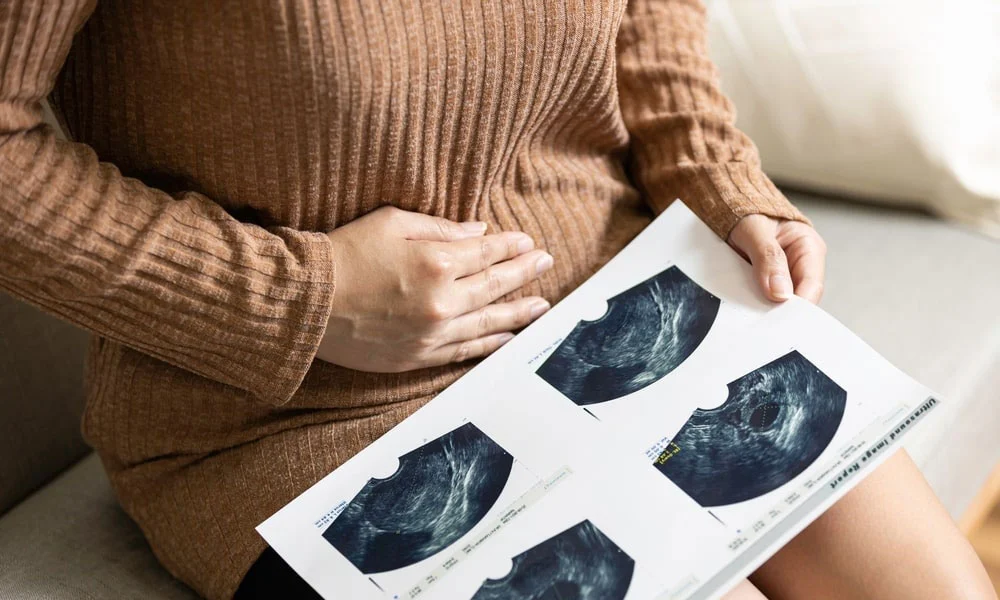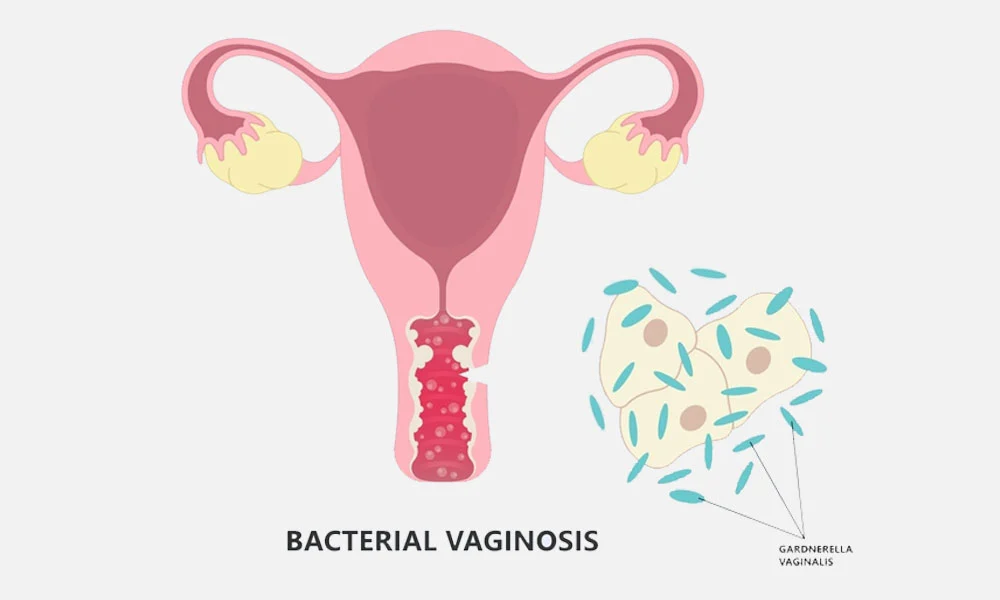The vaginal microbiome is a symbiotic relationship between good and bad bacteria within a woman’s vagina. It is imperative that the bacteria live together in a state of homeostasis to promote good whole-body health. When the vaginal environment undergoes changes, the bad bacteria can start to take over and upset the pH balance which leads to dysbiosis which causes a variety of health problems and dangers.
The Importance of Vaginal Dysbiosis

The vagina serves many purposes during a woman’s lifetime. It is the passage for menses, a necessity for conception, and the delivery site of a baby. The vaginal microbiome is a living and thriving sphere that protects the body from sexually transmitted diseases (STDs) and facilitates successful sexual reproduction. Maintaining your vaginal health is critical for long term wellbeing.
A Thriving Vaginal Microbiome

During puberty and pregnancy, high estrogen levels help to preserve and stimulate the vaginal microbiome The epithelial cells within the vagina remain healthy, and there is ample glycogen production to help maintain a thriving colony of Lactobacilli which prevents vaginal pH issues. The hormones are critical for maintaining a healthy environment that defends against viruses’ fungi, protozoa, harmful vaginal bacteria (bacterial vaginosis), vaginitis-associated bacteria, and other pathogens. However, aging, reduced hormone production, and other factors can cause a break in the vaginal microbial relationship, which causes dysbiosis and can put you at risk.
Vaginal Microbiome Changes
During a woman’s life, the vagina undergoes many vaginal changes because of hormonal and lifestyle choices. Ideally, the microbiome within the vagina functions well when there are ample lactic acid and a low pH environment which prevents the following:
- STDs
- Yeast infections
- Urinary tract infections
- Bacterial vaginosis
Reproduction and the Vagina

An imbalance in the vaginal bacterial community appears to lead to infertility, preterm birth, and spontaneous abortion. When the vaginal microbiome is functioning well, it can aid successful reproduction. Research also shows that a mother with a healthy microbiome at the time of delivery will get even ‘seed’ the female infant’s vagina during delivery to promote a lifetime of vaginal health for future generations and prevent BV.
Cancer and Vaginal Bacteria

With good and bad bacteria co-existing within the vagina, it is imperative to make sure that there is a balance so the bad does not take over the good. Recent studies show that women diagnosed with ovarian cancer appear to have fewer good vaginal bacteria. Also, mutations in the BRCA1 gene appear to increase the risk of developing breast and ovarian cancer. Researchers found that women who were diagnosed with ovarian cancer had low levels of lactobacillus within their vaginas which are critical for maintaining healthy acidic conditions.
Clearly, imbalanced vaginal health can lead to a variety of health problems. However, how much control do you have over the microbiome? With a vaginal probiotics suppository such as those offered by Biom Probiotics,
Feminine probiotics help overcome vaginal microbiome dysbiosis to return balance. The VagiBiom line offered by Biom Probiotics uses patented Biomisify technology to truly nurture the microbiome for optimum health.
The post What is Vaginal Microbiome Dysbiosis? Does it matter, Yes… appeared first on Biom Probiotics.




